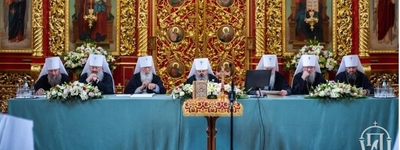The Cochlear Controversy
Science does not, of course, disprove religion; it only disproves superstitition.
In both Orthodox and Byzantine-rite Catholic churches, communion is imparted with a spoon (“cochlear,” Greek kochliarion, Slavonic lzhitsa). This custom arose in the early middle ages and is said to have been one of the points of dispute between the Eastern and Western church. The leavened bread, intincted with the wine, is dropped into the communicant’s mouth. Communicants are instructed not to allow the spoon to touch their mouths. Today, with the spread of the deadly COVID-19 thorugh the highly communicable Coronavirus, is this precaution sufficient? In the Orthodox world in particular, this has become a matter of controversy between what one might call cochleophiles and cochleophobes. The churches of Russia, Greece, Georgia, and Bulgaria tend to favor retaining the spoon, though some churchmen have allowed communicants to bring their own spoons or cups. (“Coronavirus vs. the Church,” RFE/RL, 17 March 2020). The Moscow Patriarchate has announced – along with other health measures relating to church rituals -- that the spoon must be wiped with a cloth soaked in ethanol and then dipped in water between communicants (Interfax – Religion, 17 March 2020). The soaking would be renewed regularly. This, states the communique, was the practice in the prerevolutionary church during epidemics. The chalice and other liturgical implements must also be washed with boiling water between liturgies.
The Ukrainian churches, Catholic as well as Orthodox, seem more inclined to modify ritual in the interests of public health. For example, the website of St. Joseph’s Ukrainian Catholic Church in Oakville, Ontario has announced that Communion would be distributed, but in “modified” form, that is, as a wafer only. There seems no reason, however, why the Eucharist could not be distributed in traditional form, as leavened bread, perhaps intincted, but not by means of a common spoon – as some Orthodox churchmen have suggested. (In the Ukrainian Catholic Church of the USA, the issue does not arise, as public services have been cancelled. Hence, communion can be distributed individually by a priest visiting communicants at their homes, without risk of contagion.)
It would seem that to attach that much importance to what is, after all, an implement, borders on superstition and, indeed, idolatry. And to ignore scientific facts and endanger the health and lives of the faithful by exposing them to possible contagion from the spoon would seem inconsiderate to say the least. The argument of some churchmen that the Eucharist is a source of healing rather than sickness misses the point. The issue here is not whether the bread or wine can carry the virus, for they can be protected easily enough. But faith in the healing power of the Eucharist does not entitle one to endanger one’s health – or, a fortiori, that of others – through the means – the spoon -- by which it is administered. This would seem to constitute putting excessive hope in God’s mercy, which is the first sin against the Holy Spirit, or perhaps presumption, which is a sin against the virtue of hope. After all, when the devil proposed that He throw himself from the roof of the temple in Jerusalem because surely the angels would catch Him, Jesus quoted Deuteronomy 6:16 – “you shall not tempt the Lord your God” (Matthew 4:5-7, Luke 4:9-12). Is it not “tempting the Lord” to knowingly engage in a practice that could well infect others as well as oneself with a potentially fatal disease?
Claims that the metal of the spoon or the alcohol of the communion wine will kill the virus are scientifically inaccurate. And as one Ukrainian Orthodox priest in the US has pointed out, for church leaders to make unscientific claims could reignite the pointless and misconceived “science versus religion” debate – to the detriment of the Church. (See Fr. Anthony Perkins, “Evangelism, the Coronavirus, and Communion,” OrthoAnalytika, 18 March 2020). Science does not, of course, disprove religion; it only disproves superstitition. Religion should welcome the insights of science, which only confirm the order and wisdom of God’s creation, and help us to carry out our duty of mercy and compassion for the sick.
Sometimes our cherished Kyivan Byzantine ritual has to be modified for the health and safety of the faithful. If Jesus considered it justified to break the law in order to heal the sick on the Sabbath, He would likely have thought it justified to modify a ritual to prevent sickness on the Sabbath.










